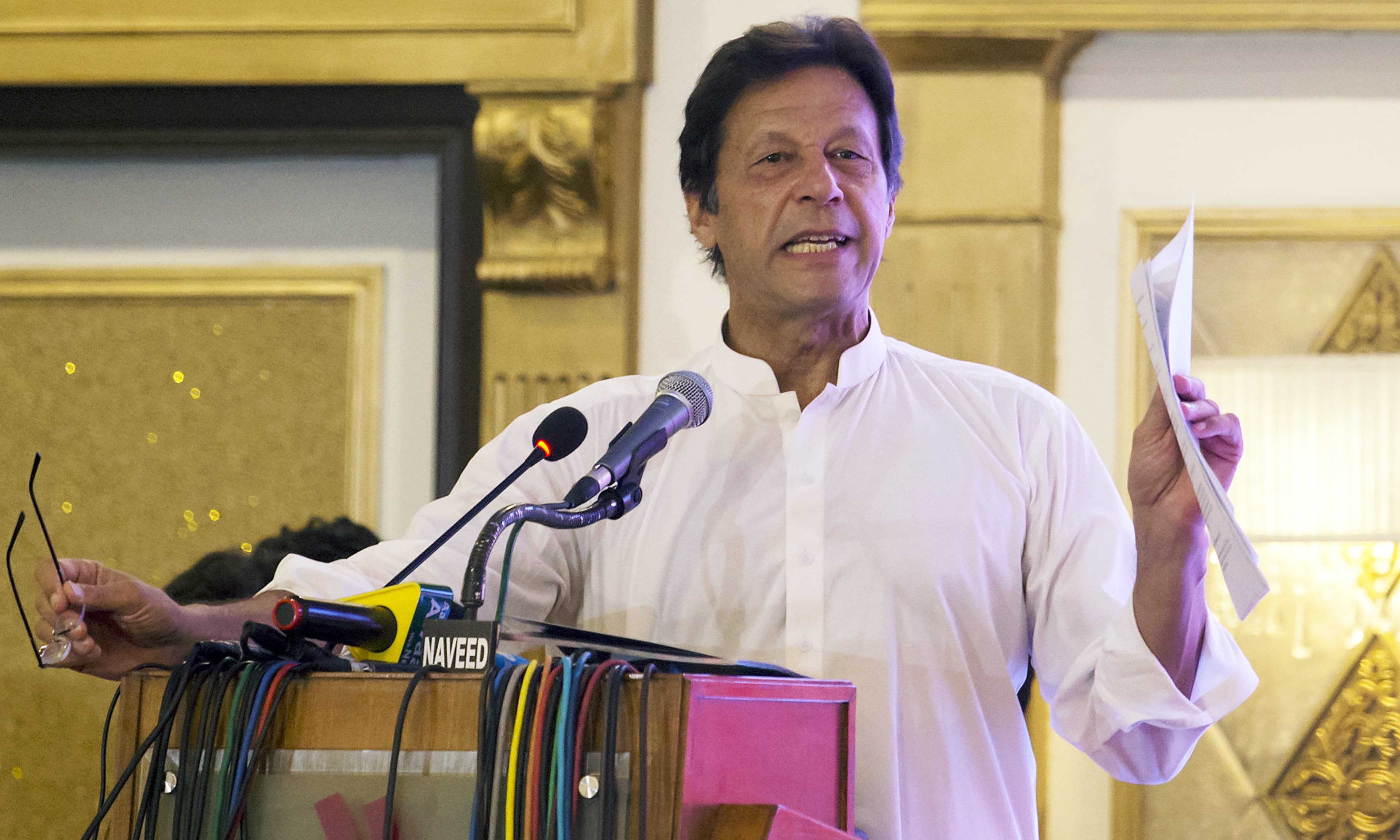Imran Khan unveils PTI manifesto 'Road to Naya Pakistan'

Pakistan Tehreek-i-Insaf Chairman Imran Khan on Monday unveiled his party's much-awaited manifesto for general elections 2018, announcing that he would turn Pakistan into a welfare state if voted into power.
Titled "Road to Naya Pakistan", the manifesto is composed of seven chapters and explains in detail the PTI's agenda for the next government.
One of the primary points of the manifesto, Khan said, is to turn Pakistan into an Islamic welfare state — a model the principles of which he said are also followed in Scandinavian countries.
Read the entire PTI manifesto here.
"We will make the National Accountability Bureau (NAB) autonomous and pursue all cases of corruption," Khan said. "We will empower the people and devolve the power to the village level.

"We will introduce a non-political model of policing like the one in Khyber Pakhtunkhwa to the rest of the provinces as well. And to ensure that Pakistanis get instant and quality justice, we will introduce comprehensive judicial reforms."
Khan outlined the major issues of all the regions and vowed to resolve them. "We will bring prominent changes to the administrative structure in Karachi; ensure successful completion of Fata's merger with KP and will allocate specific funds for it; promote politics of understanding in Balochistan; raise the movement of south Punjab province, and empower Gilgit Baltistan."
Special report: Demystifying political manifestos through a business lens
The PTI chief further said that his party would boost the economy by creating 10 millions jobs and promoting small-to-mid-level industries. "We will make Pakistan business-friendly and turn the China–Pakistan Economic Corridor (CPEC) into a game-changer by enhancing bilateral relations."
Khan also talked about water preservation via the building of dam, which he said would make the agricultural industry profitable for the farmers.
The manifesto, he said, also has plans on introducing educational reforms in schools, religious seminaries and vocational centres.
PPP was the first among the major political parties to share its manifesto, followed by PML-N.
Khan said that his party would safeguard national security and defeat the terrorists' narrative, human resources, finances and weaponry to tackle the internal threats the country faces. However, he said that in order to curb the proliferation of arms and ammunition at international level, the PTI government would also invite India for strategic discussions.
He also delineated his party's environmental agenda, saying that they would "plant 10 billion trees to tackle environmental changes."












































